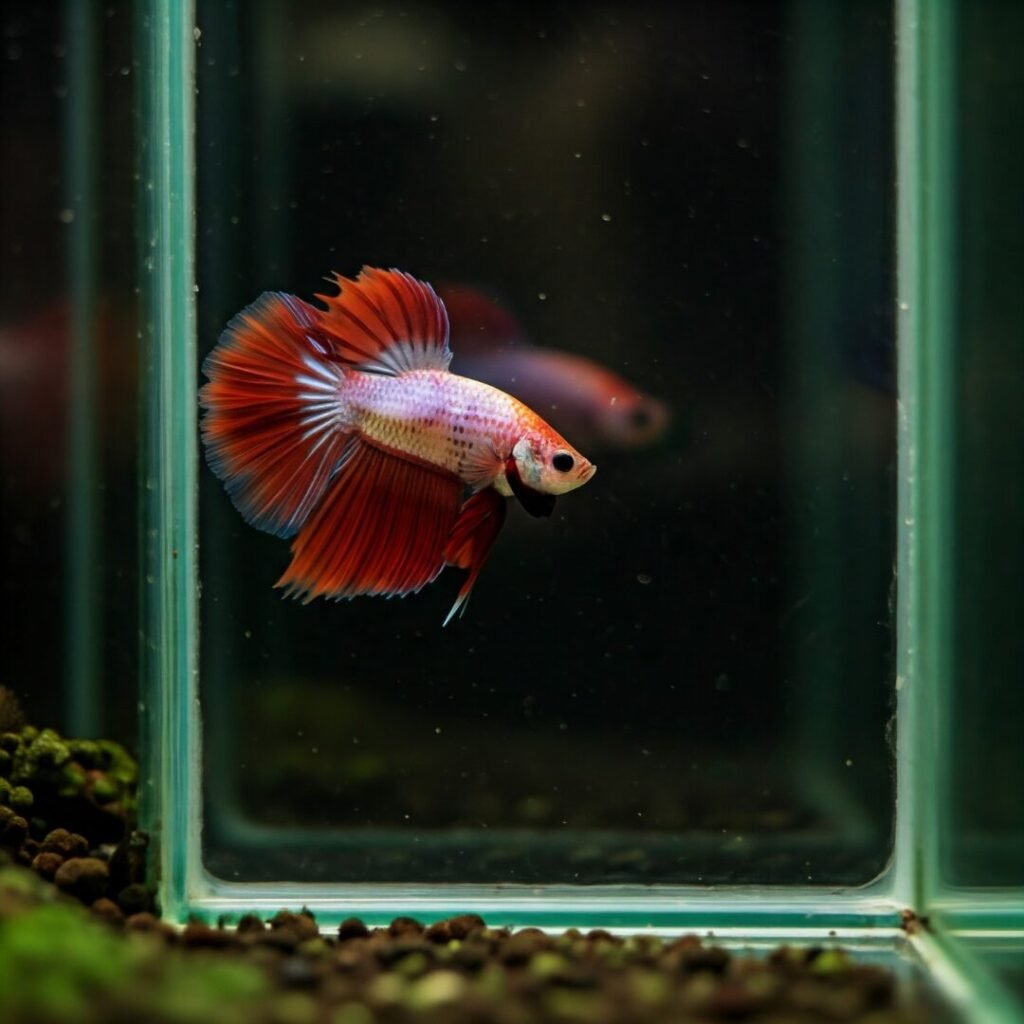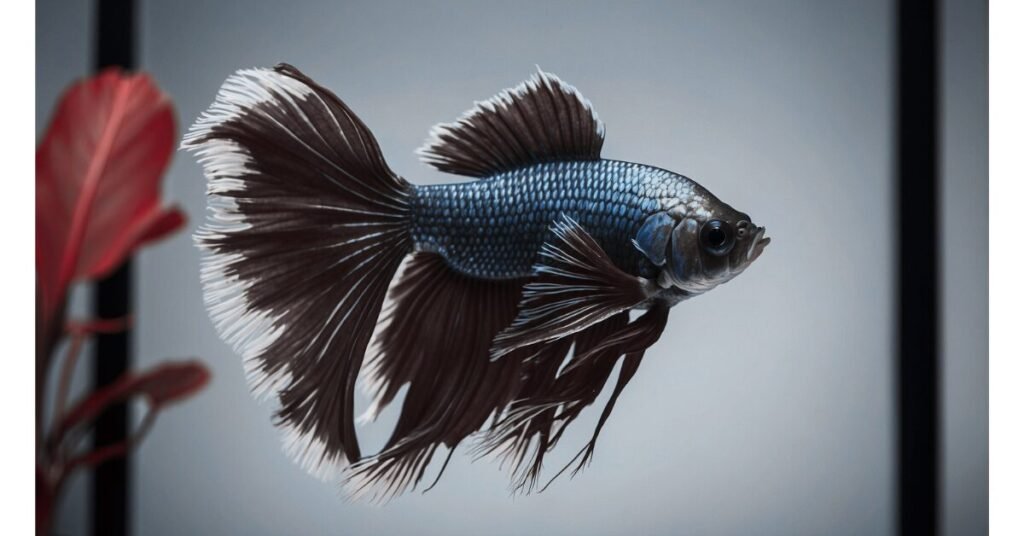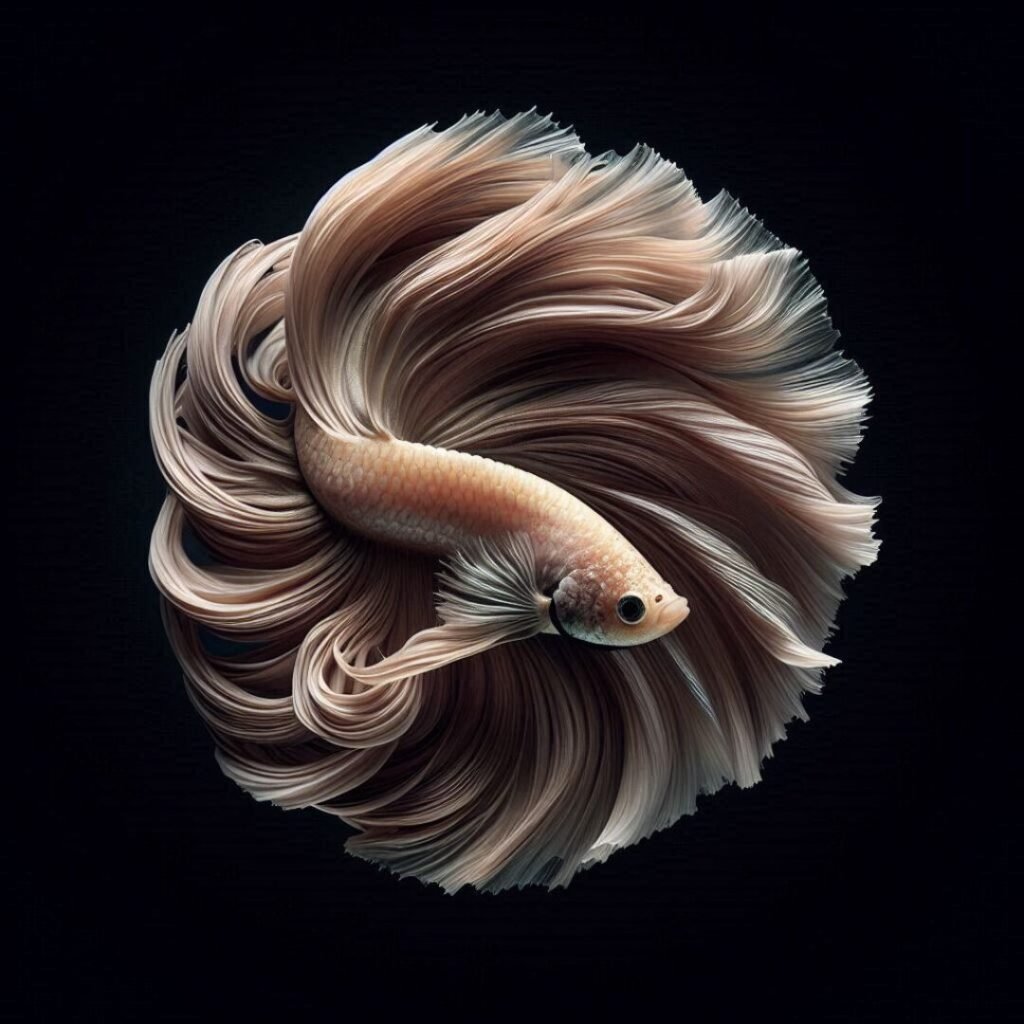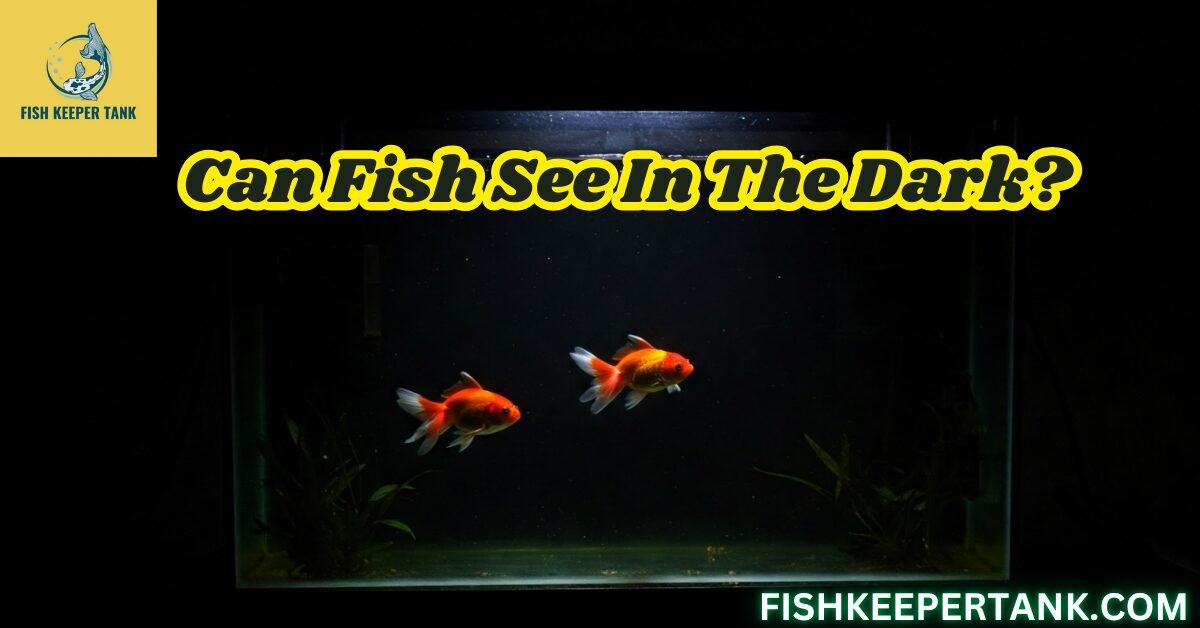Introduction
You are one of many fish owners who want to know if their tank inhabitants can detect darkness. Capturing how fish interact with their surroundings under low light is fundamental for building a productive living space. Fish of different aquatic conditions use special adaptations to move around catch prey and survive their habitats. This guide: “Can Fish See In The Dark? Fish Keeper Tank Guide” explores how fish see in the dark along with their night habits while showing you setup choices for aquarium species.
Key Takeaways
- Fish experience dark situations by employing special rod cells and tapetum lucidum structures.
- Water affects the behavior and quality of light which changes the underwater vision of fish.
- Catfish species hunt at night using their built-in sensory equipment.
- Although fish see in dark aquarium settings they need regular light schedule maintenance.
- Most fish benefit from having reduced lighting at night that matches moonlight intensity.

Can Fish See In The Dark?
Fish can perceive dim light but their night vision differs greatly from human night vision device abilities. Instead, they use biological adaptations. All aquatic life forms have rod-based retinas that function better in poor lighting. Betta fish and catfish perceive movement and light shifts better than other fish enabling them to spot prey and escape danger in dim conditions.
Light diminishes rapidly underwater. At a water depth of ten meters light intensity falls to 10 percent of surface brightness. Blue-green light remains visible because it matches the optimal range of marine species that need light to see underwater. Freshwater habitats with poor visibility and light need fish to depend on their sense of touch and hearing for survival.
What Do Fish Do When It’s Dark?
In The Wild:
- Nocturnal fish hunt, while diurnal species rest. Deep-sea fish communicate using light to find and court their targets.
- The lanternfish survives deep waters by making light through its photophores which helps it stay hidden.
In Captivity:
- A tank’s artificial lighting pattern makes each fish species adapt to it.
- Fish detect their surroundings inside the fish tank by reacting to light that spills in from daily room lighting and after-dark moonlight devices.
- The office lights in the tank follow the patterns of day and night to imitate natural lighting behavior.
Fish Eye vs Human Eye Difference
Fish have round lenses that allow them to see completely around them without eyelids. Their retinas hold more rod cells for night vision than cones which detect color. Similar to cats’ eyes the tapetum lucidum structure in fish enhances their capacity to absorb light. The specialized structure behind the fish’s eyes helps them see well in dark aquarium water.
How Does A Fish Vision Work In The Dark?
Adaptation to Low Light Conditions
- The retinas of fish transform into primary rods to improve their ability to detect weak light during nighttime.
- The time needed for goldfish to adjust is more than half an hour.
Bioluminescent Communication
- Animals in the deep sea rely on their own light production to find and catch their prey.
- Freshwater tanks need this feature less as wild environments rely on it for survival.
Sensory Organ Assistance
- Barbels on catfish and lateral lines of fish detect water movement and texture respectively.
- The organs of these species work as replacements when there is little light available.

Tips For Keeping Fish in Low Light Environments
- Place moonlight LEDs to replicate natural light rhythms.
- Changing lights suddenly creates stress in tank residents.
- Install vegetation and rocks as natural shelters for active night species.
- Research what specific light changes darker living betta fish need.
Types of Fish That Can See in the Dark
- Catfish: Use barbels and motion detection.
- Betta Fish: Can survive in dim habitats since they detect light very well in their natural conditions.
- Goldfish: Moderate low-light vision.
- Nocturnal Tetras: Active at night.
Do Fish Need a Dark Environment?
Yes! Fish depend on darkness for proper scheduling of their daily patterns. Total darkness causes problems with their awareness. Keep low levels of light or moonlight on to assist their vision in dark water conditions.
Benefits of Low Light Environments for Fish
- Reduces stress and aggression.
- The setup matches how fish live in their real environment like shallow black freshwater streams.
- Fish prefer to eat during nighttime hours when the light is dim.
Do Fish Need Complete Darkness To Sleep?
Fish enter sleep mode by slowing down their movements instead of fully losing consciousness in the dark. Soft lights enable them to keep their sense of direction. The lack of light disrupts their dark vision so they could not safely locate food when startled.
How Much Dark Do Fish Like In Their Tank At Night?
Keep a dim light on for 8 to 12 hours during sleep time. Place one or two small blue or red LED lights of one to two watts to create moonlight effects. The weak lighting enables fish to detect moving objects while staying asleep in their tank environment.
Feeding Fish In The Dark
Nocturnal species (e.g., plecos) forage at night. Give sinking food under LED moonlight illumination at night. Make food reachable for fishes who need their eyes to detect it as they feed at night. How Long Can Betta Fish Go Without Food?
Nocturnal Species Behavior
During night hours these fish move and detect their surroundings through stronger sensing abilities. Certain species of knifefish and cichlids exhibit their nightly behaviors. The eyes of these fish appear enlarged to catch more light particles.

Building The Best Lighting Setup For Your Fish Tank
- Daylight Spectrum: 6500K LEDs for 8–10 hours.
- Night Lighting: Blue/red LEDs (<5% brightness).
- Timers automate cycles, reducing stress.
Conclusion
Fish develop unique abilities to sense light during nighttime no matter what water environment they live in. You can make an optimal space for fish by duplicating day-night light patterns and knowing their individual requirements. Your fish needs just the right darkness to thrive because excessive darkness loses direction for them.
Frequently Asked Questions
How Do Deep Sea Fish See In The Dark?
Deep-sea fish use bioluminescence and highly sensitive rod cells in their eyes to detect minimal light and navigate their environment.
Can Fish Live in the Dark Completely?
Yes, some fish, especially deep-sea and cave-dwelling species, have adapted to live in total darkness using other senses like touch and smell.
Are Fish Afraid of the Dark?
No, fish are not afraid of the dark. Many species are nocturnal and prefer low-light conditions for hunting and resting.
Can Fish Be Fed in the Dark?
Yes, nocturnal fish naturally forage in the dark. Using dim lighting or moonlight LEDs can help them locate food easily.
Should I Leave the Tank Lights Off at Night?
Yes, turning off tank lights at night helps fish maintain their natural sleep cycle and reduces stress.
How Long Should the Tank Lights Stay Off?
Ideally, tank lights should be off for 8–12 hours at night to mimic natural day-night cycles.
How Dark Do Fish Like the Tank at Night?
Fish prefer dim lighting at night, similar to moonlight. A small blue or red LED light can be used for visibility without disturbing them.
Can Betta Fish See in The Dark and Do They Need Light at Night?
Yes, betta fish can see in dim light but not in complete darkness. They do not need light at night but benefit from a regular light-dark cycle.
Can I Use Blue Tank Lights at Night?
Yes, blue lights mimic moonlight and are safe for fish at low brightness levels, helping nocturnal species remain active.
Can Fish See Colors?
Yes, most fish can see colors, though their perception varies by species. Some fish can even see ultraviolet light.
Can Fish See Far Away and Close Up?
Fish have a wide field of vision but limited depth perception. They can see objects up close and far away, but not with the same clarity as humans.
Which Fish Have the Best Eyesight?
Species like mantis shrimp, four-eyed fish, and archerfish have exceptional eyesight, with abilities like UV vision and precise depth perception.
Can betta fish see in complete darkness?
Betta fish see in the dark using residual light and motion detection, but total darkness stresses them.
Do aquarium fish need light at night?
Use minimal lighting (e.g., blue LEDs) to help fish see in the dark aquarium without disrupting sleep.
How do deep-sea fish see without light?
They use bioluminescent communication and enhanced rod cells to detect faint light sources.
Can goldfish see in the dark?
Goldfish have moderate night vision but rely on tank lighting cues for activity.
Can fish see in the dark freshwater?
Yes, some freshwater fish have adapted to low-light conditions.
Do fish need total darkness to sleep?
Most fish rest better in complete darkness.
Can fish find food in the dark?
Yes! Nocturnal fish use smell and movement detection to locate food.
Should I turn off my fish tank light at night?
Yes, to simulate natural day-night cycles.
What type of light is best for aquariums?
Soft LED or dim moonlight lighting is ideal for nighttime.
People Also Read:

